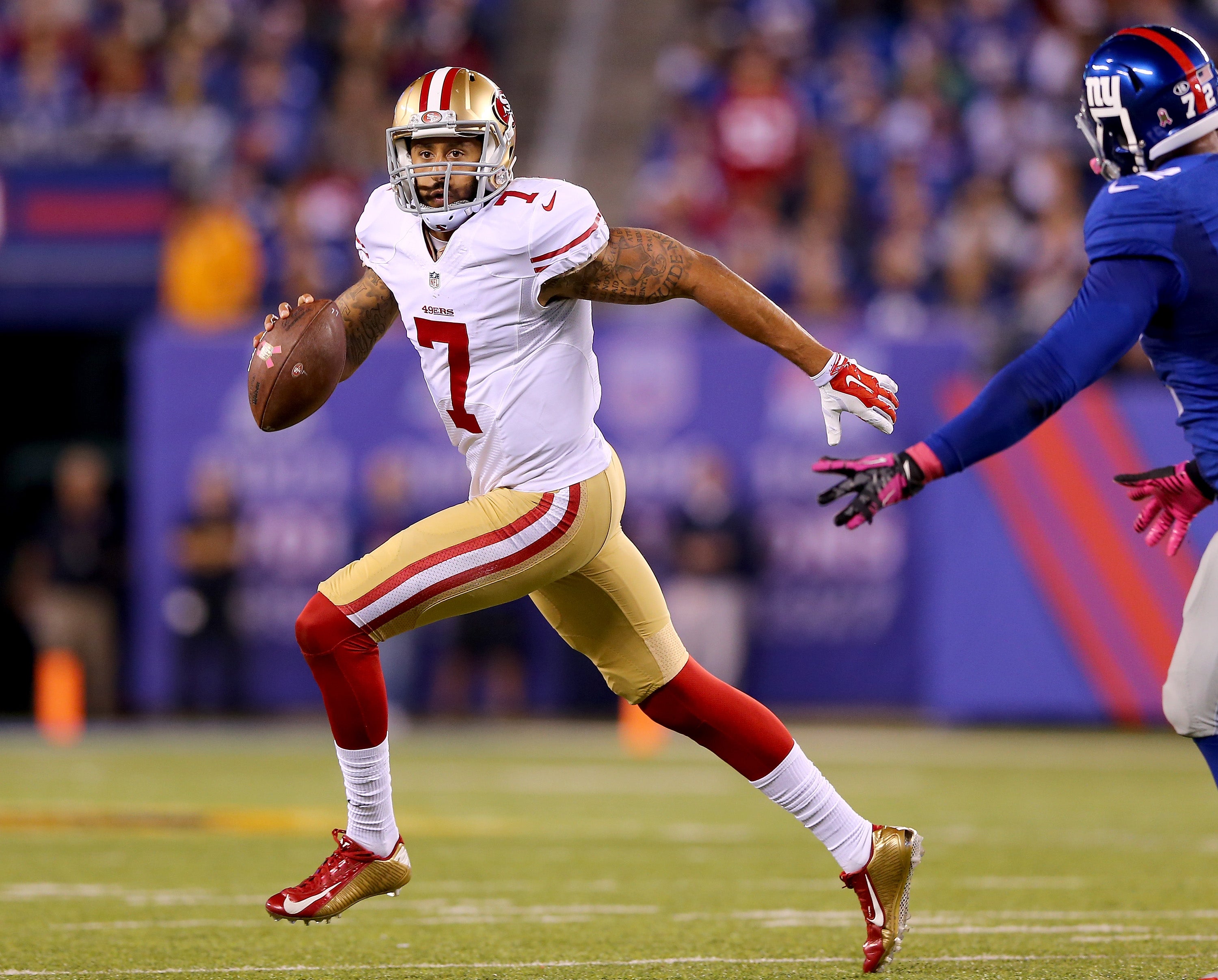
Since Colin Kaepernick’s protest of the mistreatment of Black Americans last month, his jersey sales have skyrocketed to number one.
When the San Francisco 49ers quarterback received criticism that his protest didn’t provide any tangible change, he promised his first million dollars this season to charity.
“I am planning to take it a step further. I’m currently working with organizations to be involved, and making sure I’m actively in these communities, as well as donating the first million dollars I make this year to different organizations to help these communities and help these people,” Kaepernick said last Thursday.
WANT MORE FROM ESSENCE? Subscribe to our daily newsletter for the latest in hair, beauty, style and celebrity news.
In addition to the one million dollars promised, Kaepernick will also add his jersey sales to the donation, which he announced via Instagram.
“I wasn’t expecting my jersey sales to jump to number one because of this, but it shows the people’s belief that we can achieve justice and equality for ALL!” Kaepernick posted.
“The only way I can repay you for the support is to return the favor by donating all the proceeds I receive from my jersey sales back into the communities! I believe in the people, and WE can be the change!”
Kaepernick believes that the spike in jersey sales is because Americans do believe that “there can be change and we can make this country better.”